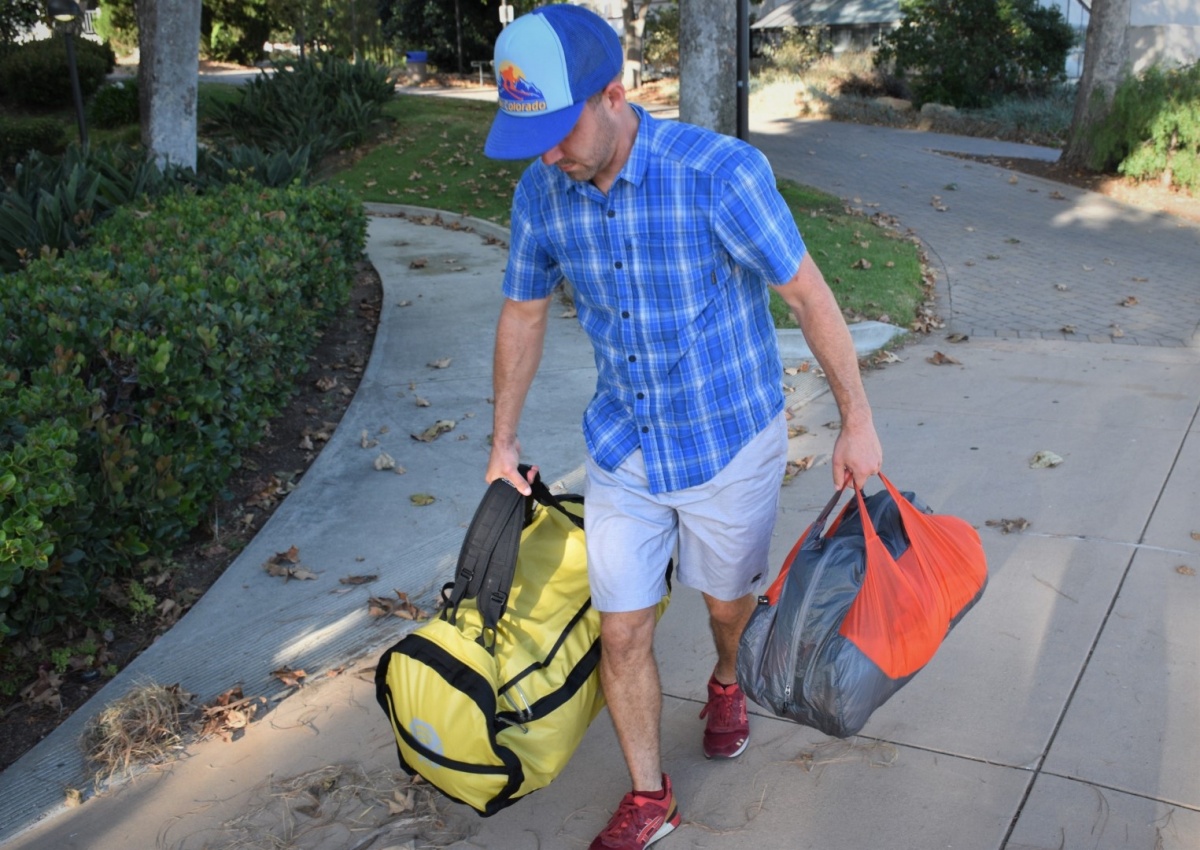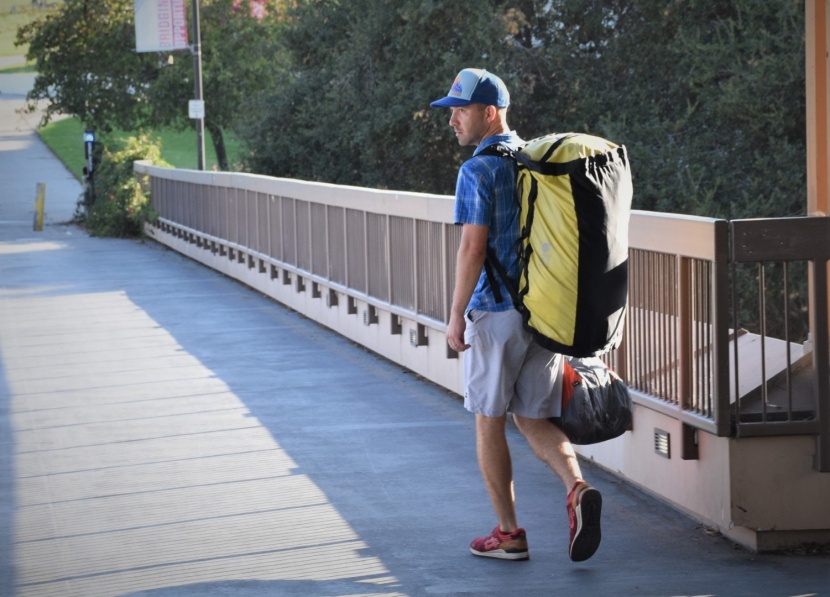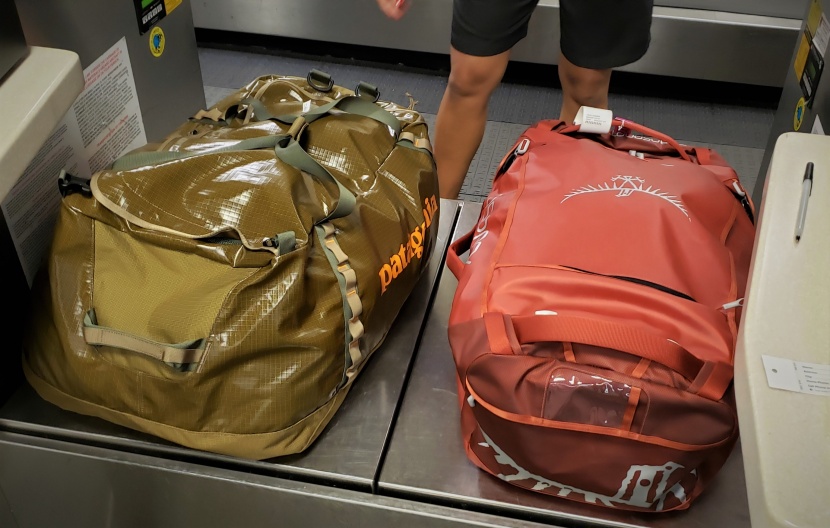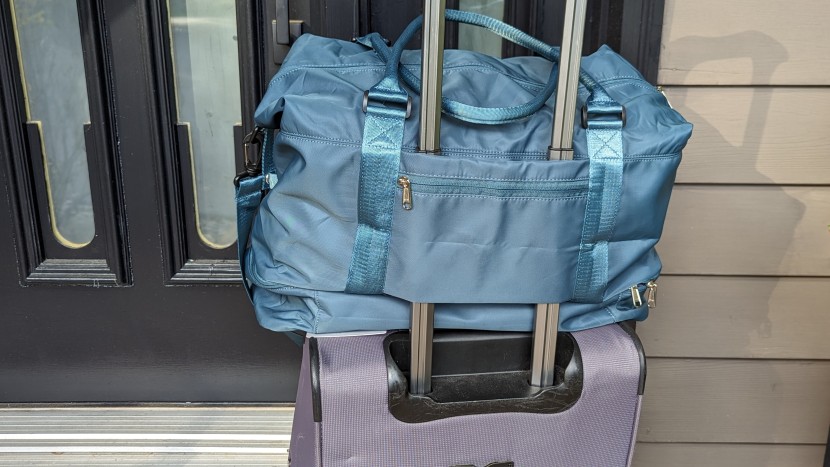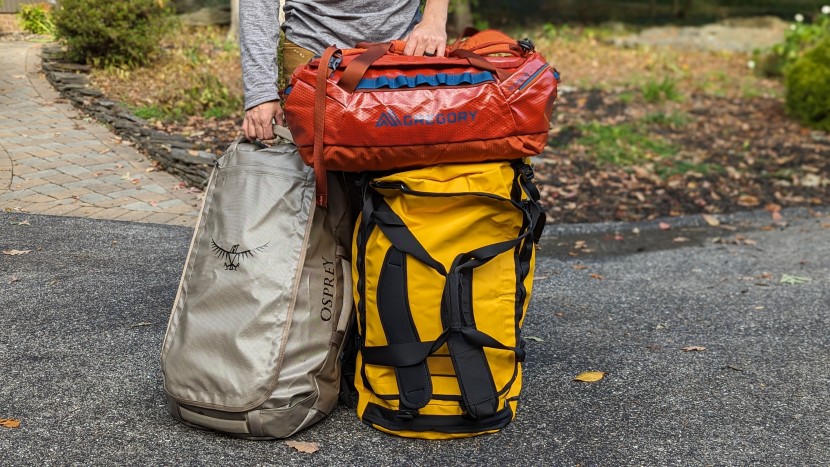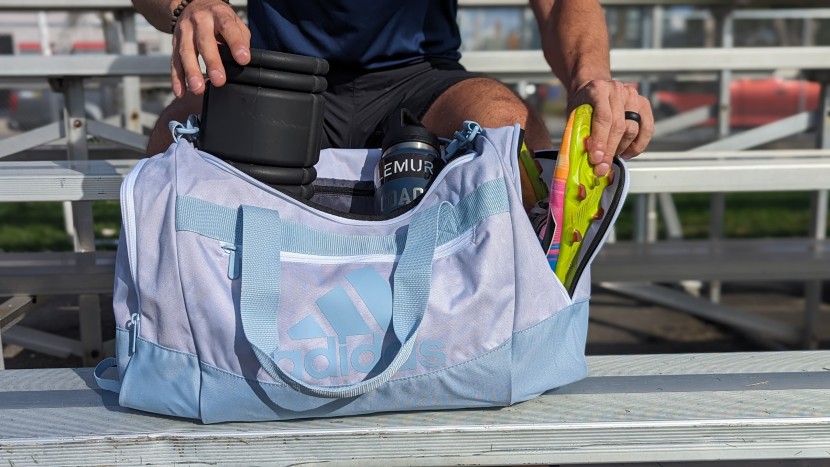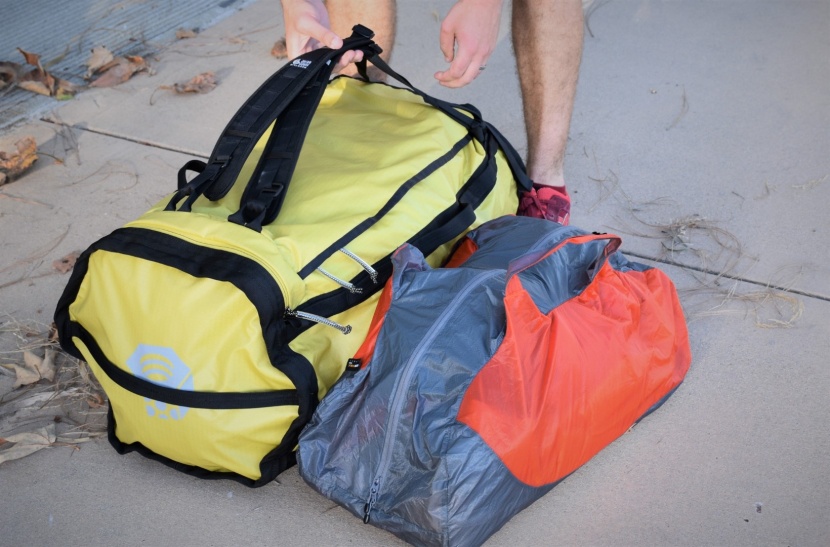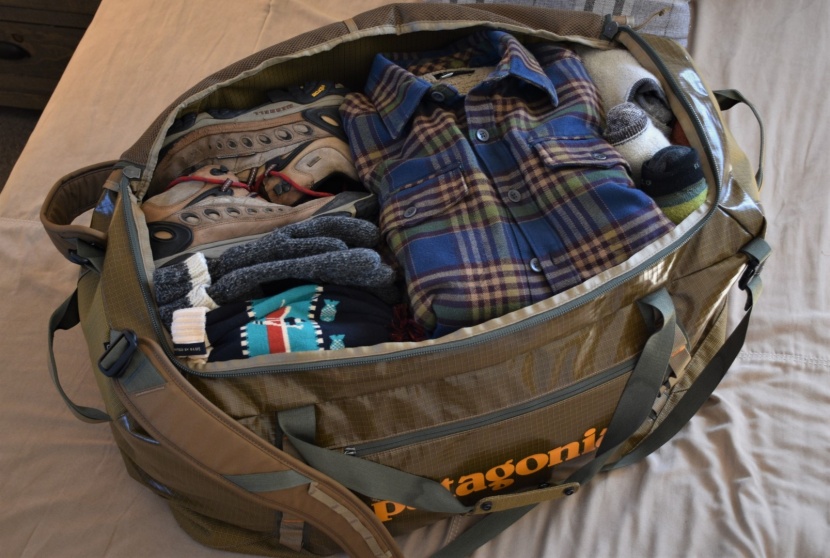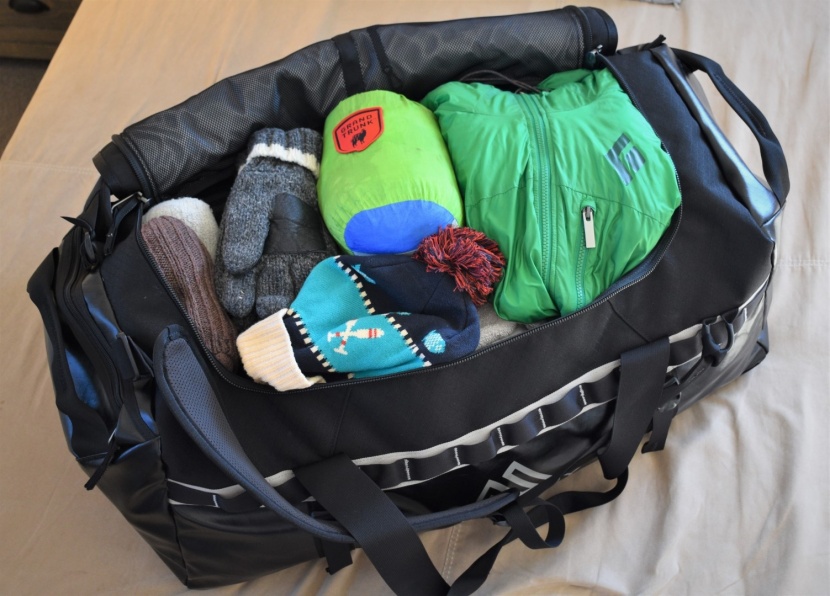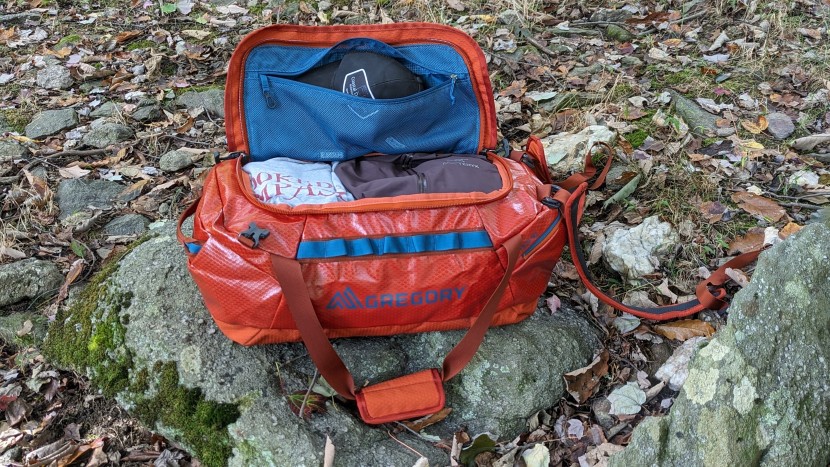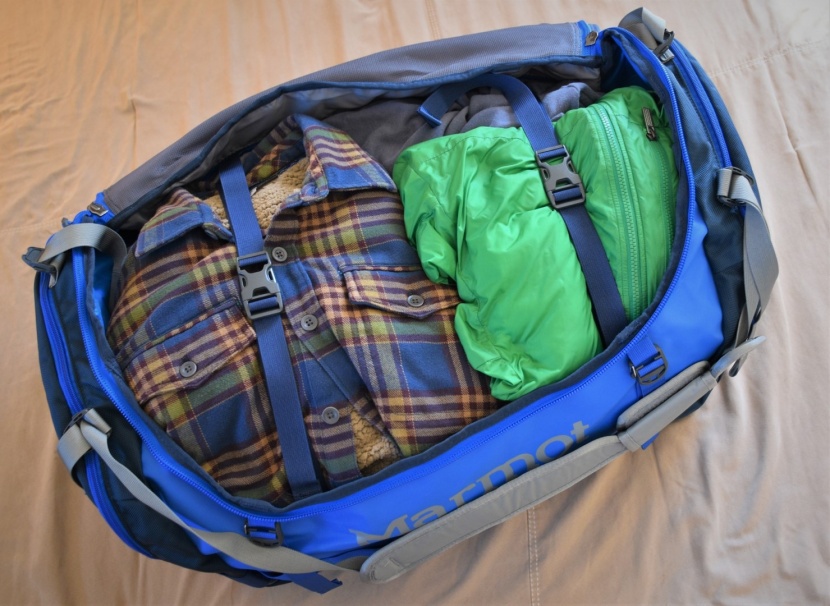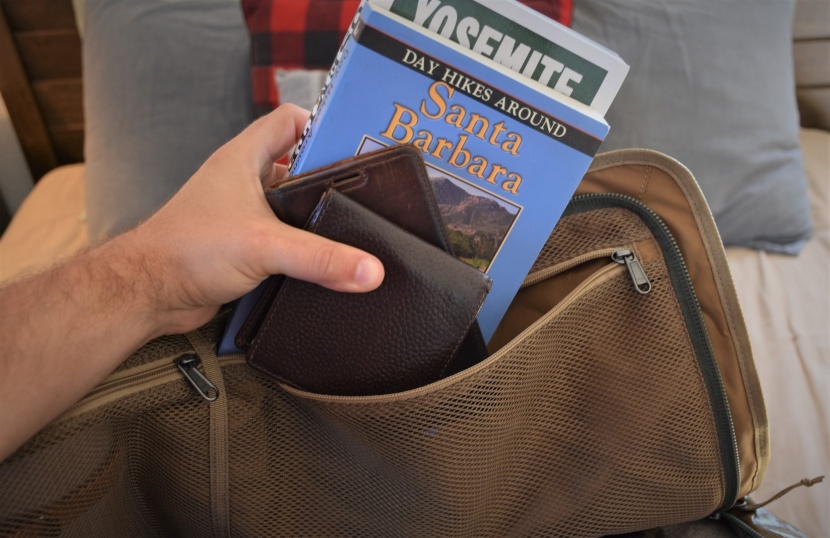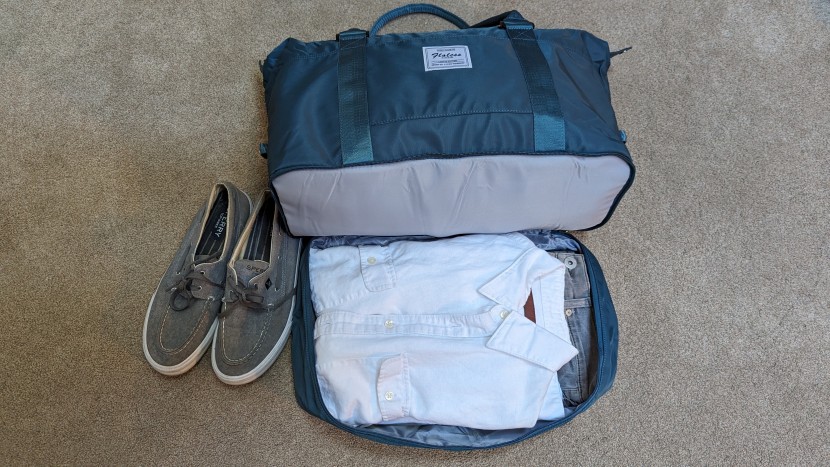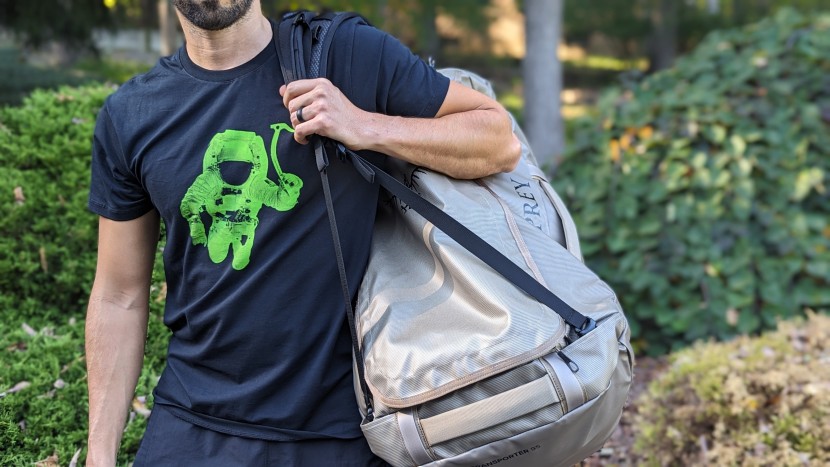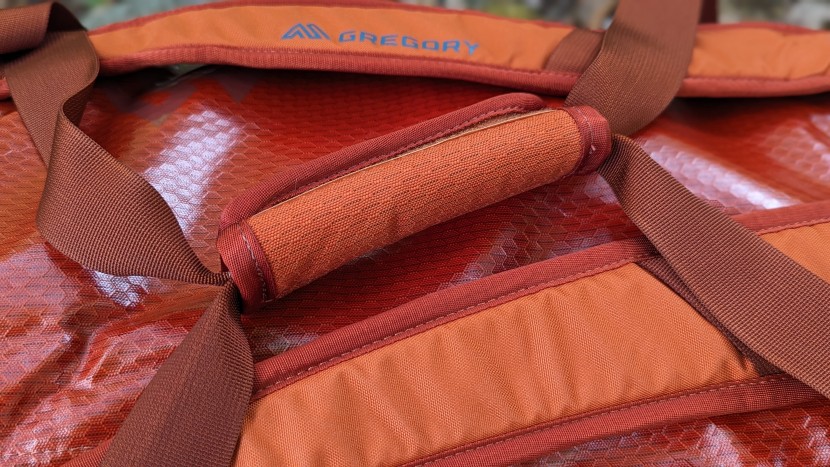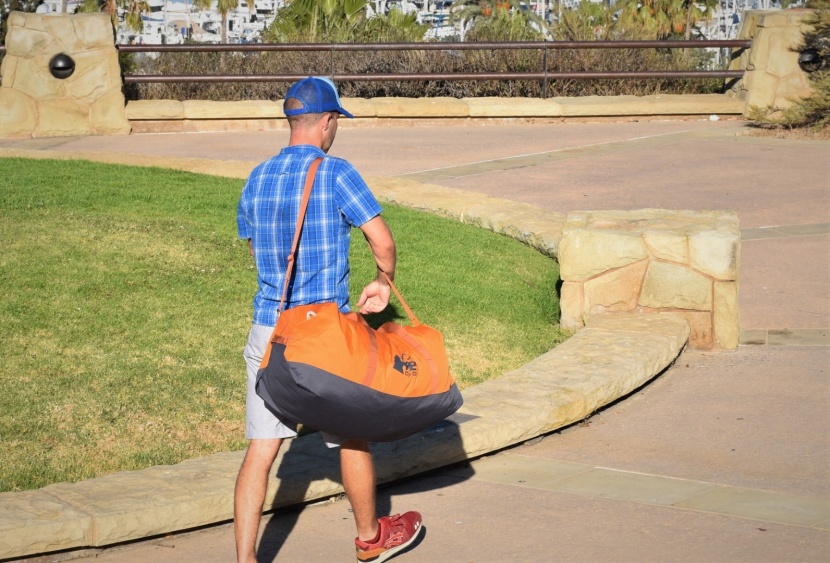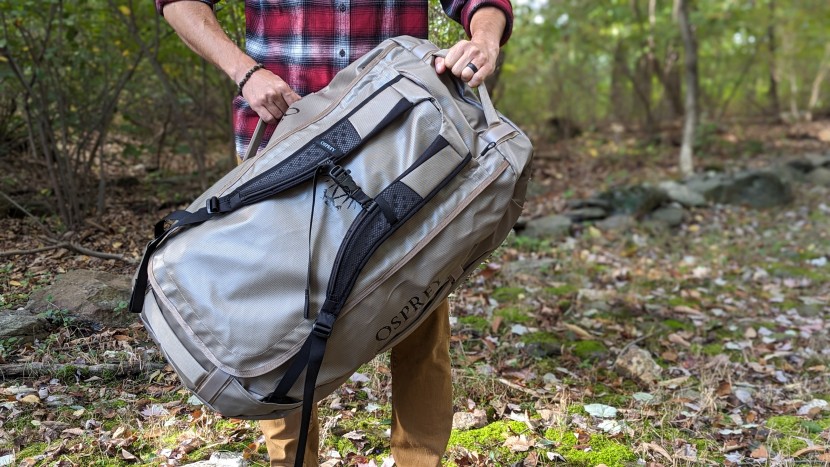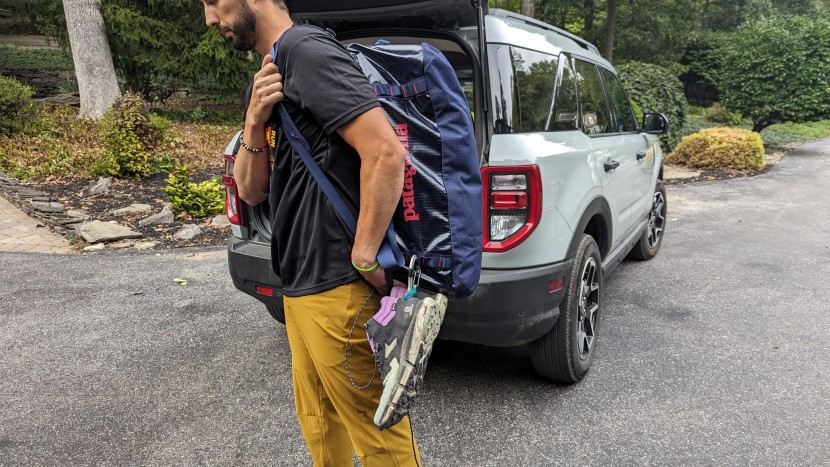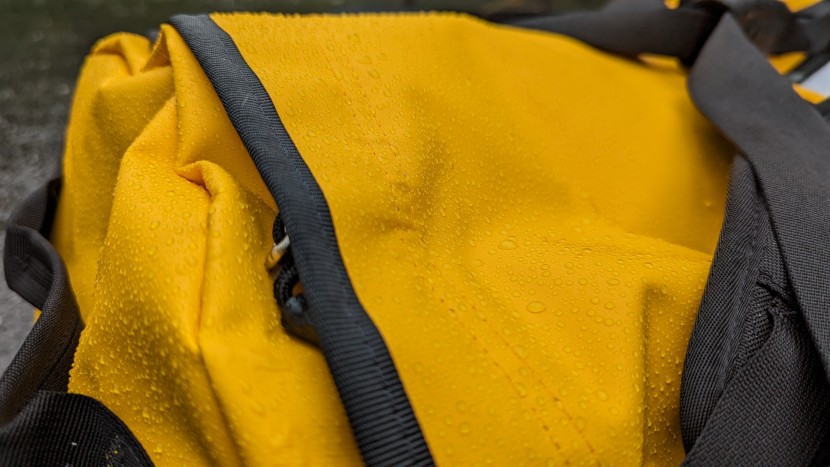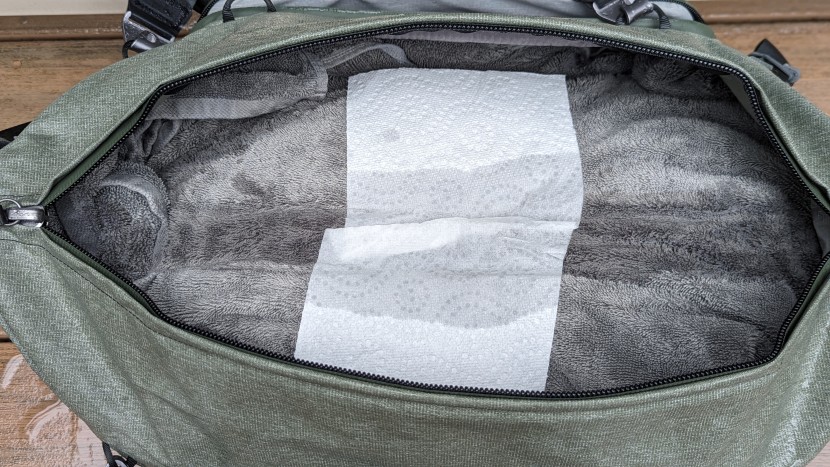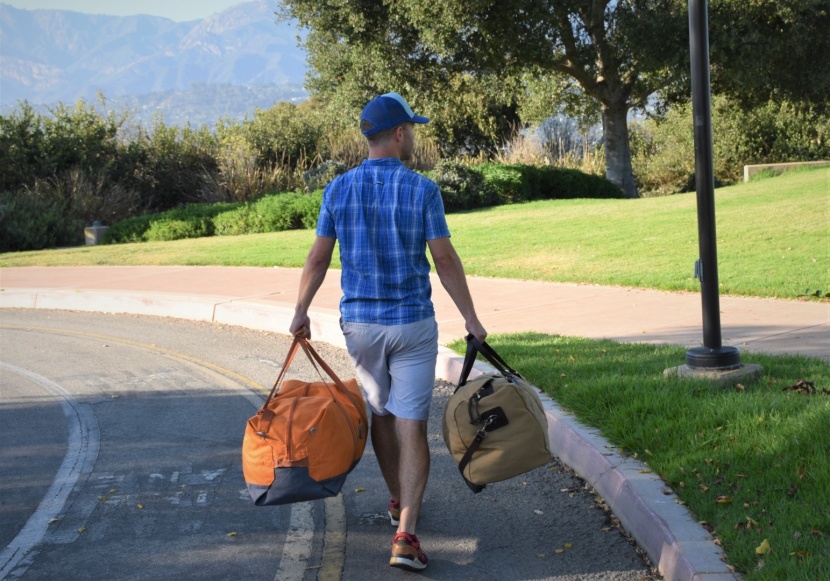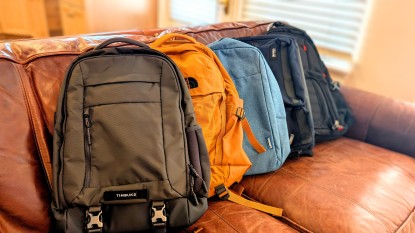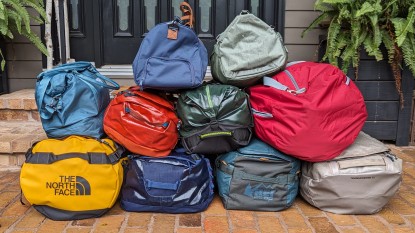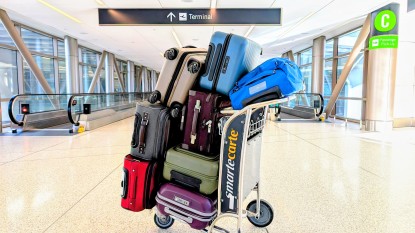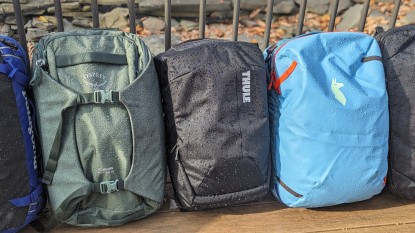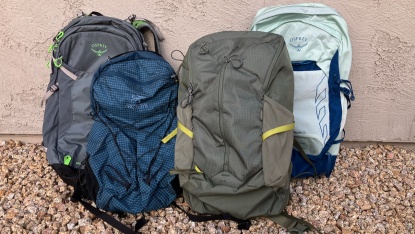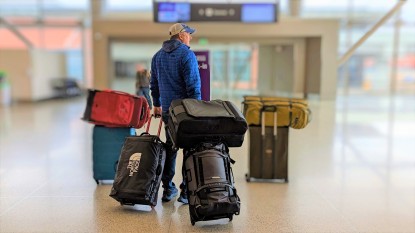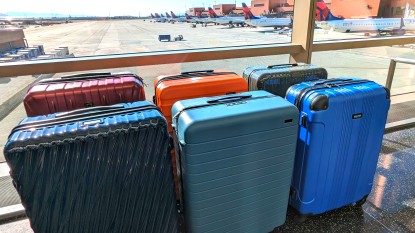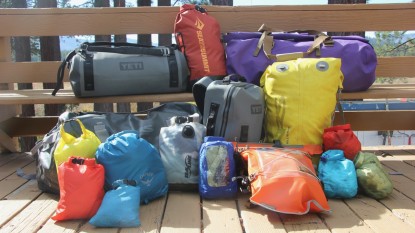Perhaps one of the most versatile pieces of luggage, duffel bags come in all different sizes, shapes, designs, materials, and carrying options. This category includes everything from heavy-duty models built for months-long expeditions to the most remote corners of the earth, to smaller models designed for every day use, and everything in between. Almost all of the top outdoor product manufacturers have created their own version of the classic travel piece. The results are undoubtedly impressive, but the differences between each model can be confusing. That's where we come in to help. We break down the category to help you better understand the nuances, decipher what you should be looking for, and find the right product for your needs.
Intended Use
As with any type of product, the first step to finding the right duffel bag begins with assessing your personal needs and how you intend to use it. Whether you need a high-capacity beast to take on a couple of big trips a year, a handy lightweight model for daily trips to the gym, or a more well-rounded model for general travel, there's definitely a product that will meet those demands. Keep in mind that as the design gets more specialized to optimize certain features, there are usually tradeoffs that may make it less well-rounded for other uses.
General Travel
Bags intended for general travel will usually have well-rounded designs that balance weight and durability, comfortable carrying options, and user-friendly features like extra storage pockets or easily removable straps. These designs may be constructed from lighter weight nylon or polyester, or heavier natural materials like leather, canvas, or waxed cotton. A 90 to 100-liter storage volume is an ideal size for extended trips and provides plenty of storage space without too much risk of hitting a typical 50-pound airline weight limit. Make sure to consider your preferred carrying method, so that you can comfortably and efficiently lug your bag through the airport or the hotel lobby.
Weekend Trips
The perfect model for a weekend getaway will likely be the same as a design intended for general travel, only smaller. Most of the bags that we tested come in a variety of sizes, and smaller models in the 30-liter to 50-liter size range are ideal for most 2-3 day trips. This size range also overlaps pretty well with the carry on baggage size limits for most U.S. airlines, which usually ends up being about 40 to 45 liters, depending on the bag's dimensions. Since smaller models aren't able to carry as much weight, having a variety of comfortable carrying options in this size range isn't as critical, and many designs forgo backpack straps in favor of a single shoulder sling or more simple carrying handles.
Rugged Adventures
When you're preparing to travel into unforgiving environments or remote corners of the world, a heavy-duty duffel is mandatory to carry and protect your precious gear. Whether the locale you visit is hot and sandy, cold and wet, or just plain frigid, rugged expedition-style designs are up for the task. These designs are usually similar to those intended for general travel but add in different features and extra durability. Many models are constructed from extremely robust 900 or 1000-denier laminate materials with reinforced bottom panels, have heavy-duty grab handles and backpack straps, and include daisy chain attachment points to tie down onto a 4x4 vehicle, pack animal, or haul sled. There is certainly an overlap between these rugged models and those intended for general travel, but the more robust options will generally be heavier, have fewer storage pockets, and sometimes have a slightly less refined style, depending on your taste. Duffels intended for adventure travel are usually also available in larger sizes, up to 150 liters.
Normal Daily Use
When you're headed to work, school, the gym, soccer practice, or running around town, a duffel bag can be one of the most efficient daily luggage options. Designs best for regular everyday use will be similar in size as weekend duffels, around 30 to 40 liters, but will typically be lighter and may have fewer features. These models are durable enough for daily use, but will usually prioritize a simple, lightweight design and packability over fancier features and heavier-duty materials. Models in this category could range from more classic leather or waxed cotton designs to more modern ultralight nylon designs that can pack down to the size of a tennis ball.
Duffel Bags vs. Other Types of Luggage
There is an abundance of luggage options on today's market, with everything from backpacks to checked luggage, duffels to carry-ons, and even purses, briefcases, and fanny packs. Choosing the right type of luggage depends on your personal needs and preferences, such as your preferred carrying method, how much storage volume you need, whether you prefer a rigid or soft-sided design, and how much empty luggage weight you can tolerate. Duffels provide a great balance of storage volume at a reasonable weight and usually have a variety of carrying methods that are more comfortable than ever before.
Backpacks will be more comfortable to carry but usually won't provide as much storage space. Rigid suitcases or wheeled luggage will be more protective and more convenient to haul on smooth surfaces but will be heavier, won't be able to squeeze and mold to tight spaces, and won't be as mobile over longer distances or uneven terrain. Duffel bags provide a versatile blend of some of the best features of every other type of luggage.
Selection Tips
Now that you have a better understanding of your needs, preferences, and the versatility of these bags, it's time to dig a little deeper into the different design variables to help you select the product that suits you best.
Storage Volume
A bag's storage volume is easily the most personal and most subjective variable among different types of travelers. Climbers, skiers, divers, or other adventures with extensive equipment needs will often require more storage space than general travelers headed on a family vacation or a holiday trip back home, or business travelers, daily gym-goers, or weekend warriors.
The largest volume available for most of the duffels in our lineup is in the 125 to 150-liter range. Ideal for hauling climbing or skiing equipment, scuba diving gear, odd-shaped tools, or merely a bunch of clothes and shoes, these bags are enormous and can be cumbersome to lug around and will often surpass the 50-pound airline baggage limit when fully loaded. Bags in this size range need to have heavy-duty backpack straps, grab handles, and daisy chain attachments for wrestling them around yourself or tying them down to your transportation.
For longer-duration general travel, a 90 to 100-liter bag is an ideal volume, as we mentioned earlier. It provides plenty of space for over a week's worth of clothes and gear and usually will still stay comfortably under the 50-pound baggage weight limit. On the smaller end of the spectrum, a bag in the 70-liter range will fill up more quickly but can be a little more convenient for hauling around, especially when you don't need to pack very heavy or you're traveling light to a warmer climate.
Finally, duffel bags for daily use, weekend getaways, or as airline carry ons will generally fall in the 30 to 50-liter size range. These duffels have plenty of space for a few changes of clothes and shoes, are lighter and more comfortable to haul around, and usually fit in an airplane overhead baggage bin. Many options nowadays are in the ultralight/packable category, constructed from impressively durable and light materials with the ability to pack into a tiny stuff sack. This size range provides the most versatility for shorter travel durations and different types of use.
Organization Features
In general, most duffel bags have only one main storage compartment that is accessed by a large I-shaped or D-shaped zipper and will only have an additional one or two total zippered storage pockets. In general, D-shaped zippered openings are more useful than straight zippers because they allow you to see and access more of the storage space. If you have longer items to carry, such as trekking poles, camera tripods, or other lengthy sport-specific equipment, pay extra attention to a model's dimensions to ensure that there is enough length to accommodate your gear.
Most packs have at least one internal zippered storage pocket, usually underneath the top lid or at one end of the bag. Pockets under the top lid are generally larger and more accessible, providing the most convenience and utility. Pockets at the end of the bag can be harder to reach when the bag is fully loaded. The location and orientation of a pocket or pockets can help tremendously with organization. They can save time and frustration by helping you keep track of easy-to-lose smaller items.
Similarly, an external pocket or two can be a huge added convenience. Pockets located on the broader side of the duffel are usually smaller sleeve-style openings that are ideal for a wallet, phone, or a book. In contrast, pockets on the end are often a bit deeper and make an excellent spot for stashing wet or dirty clothes or shoes.
Carrying Options
This category focuses explicitly on duffel bags without wheels. Wheeled options certainly have their place and are more convenient for rolling through an airport or across paved surfaces, but they also often double or triple a bag's weight and aren't very practical for use across uneven terrain. Traditional duffel bags are usually more versatile, can be carried across more rugged terrain, can be contorted to fit in tight spaces, and can be tied down to sleds, snowmobiles, pack animals, or other non-traditional modes of transportation.
However, not all duffels can be transported as efficiently as one another. Most products have some combination of handles and straps that you can carry in your hand, slung over your shoulder, or on your back like a backpack. Each of these applications has its place and may be the most comfortable and convenient carry method depending on the weight of the pack and the distance and duration of carrying.
Traditional Duffel Handles
Most duffel bags include a set of traditional carrying handles for a briefcase-style carry by your side. These handles are usually permanently attached to the bag and typically have a velcro clasp to join the two handles together and provide a more comfortable grip. They are generally reasonably lightweight, are convenient to grab, and stay out of the way when not in use, but can make for uncomfortable and awkward hauling with larger bags and or heavier loads.
Shoulder Straps
The second traditional carrying method is a long shoulder strap. This single strap attaches to both ends of the bag, is usually adjustable in length, and often has some sort of padding for your shoulder. It is also typically removable to keep it out of the way during the airline baggage check process or when you simply don't want to use it. Although this carrying method is typically not as comfortable or balanced as dual backpack straps over longer distances, it is very efficient for hauling heavier loads across shorter distances or when you may repeatedly be setting it down and picking it back up.
Backpack Straps
Dual backpack straps are typically the most useful and comfortable carrying option for larger and heavier loads over most distances. Being able to balance the load evenly across your back is much easier than carrying a bag on one side of your body and leaves your hands free to hail a taxi, grab other luggage, or wrangle stray kiddos. Most of the options in our review lineup include some kind of backpack straps with varying degrees of padding and ergonomic design. Straps with thicker padding, contoured shapes, and adjustability on both ends tend to perform the best. Also, keep in mind how easy it is to remove or stow away the shoulder straps. Many airlines request that you remove all loose straps during the baggage check process. Removing some straps is a tedious process involving weaving thick pieces of webbing through small buckle slots, while others have quick-release buckles or clips or even their own built-in stowaway compartment.
Other Features
Additional features like daisy chains or other attachment points are useful for tying your bag down on a 4x4 vehicle, pack animal, or motorcycle, and compression straps help secure and balance your less-than-fully packed load. Heavy-duty grab handles are great for pulling bags out of cars or buses or off baggage claim belts, or even just dragging them around when you have too much stuff. Likewise, some models have more robust grab handles that can comfortably function as your primary carrying handle.
Durability and Weather Resistance
Protecting your precious gear from the elements is essential, whether you're hauling climbing gear into remote alpine environments or a new outfit to the annual family reunion. Thicker and more rugged materials are more resistant to punctures or abrasion and provide a better barrier to protect against moisture, and reinforced seams, extra body panels, and robust zippers and hardware help complete the package.
Across the entire market, duffels are constructed from all kinds of different materials ranging from nylon to polyester to canvas to leather, but most models in our review lineup are made from nylon or polyurethane laminates. Many bags are made from 900 to 1000-denier materials with waterproof coatings and include additional reinforced bottom panels for extra protection. A fabric's denier is generally a measure of its thread thickness and density, where a higher number equates to a thicker and usually more durable material. Duffels in our lineup range from 1000-denier waterproof laminates down to 30-denier silky-smooth ultralight nylons.
Weather resistance is often closely correlated with durability, although certain features help provide weather protection regardless of a model's durability. While many products we reviewed have waterproof body materials, most of them remain vulnerable to moisture penetration at their zippers and seams. Most duffel bags have a robust main access zipper that isn't waterproof but also includes a 1 to 2-inch weather flap that extends from the top lid to add extra protection. Other usually smaller zipper designs may also have a built-in water-repellant cover. Most body seams are reinforced and covered with an additional layer of material but aren't fully taped to provide a complete seal against moisture. While none of the bags we tested are 100% waterproof for complete submersion, most will provide excellent protection in all but the harshest conditions from rain, snow, dirt, and dust. If what you seek is a truly waterproof bag, consider picking up a dry bag instead.
Weight
While weight is an important factor to consider because of airline baggage restrictions (50 pounds per bag for most U.S. airlines, before additional fees apply) and your own personal carrying capabilities, most duffels in our test lineup are within a pretty small weight range. Most test models in the 90 to 100-liter size range weigh between 3.5 and 4.5 pounds, leaving you plenty of capacity to pack that extra outfit. Also, keep in mind that you're saving approximately four to seven pounds of weight compared to similarly-sized wheeled duffels or suitcases.
On the other end of the spectrum are some newer ultralight and packable duffel bags. Many of these smaller-capacity models weigh in at less than half a pound and pack down to the size of a water bottle or less. While not as burly as the larger and more robust designs, these duffels make an excellent option for everyday use to the gym or around town or to pack along in your larger luggage for a secondary lightweight carrying option for day trips on your vacation.
Conclusion
Duffel bags come in all kinds of shapes, sizes, materials, and designs. Ideal for everything from remote expeditions to family vacations to weekend getaways to daily use, these are some of the most durable and versatile pieces of luggage out there. With so many options to choose from, we hope that this guide helps you better understand the market and hone in on your needs and priorities.

